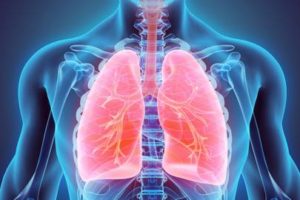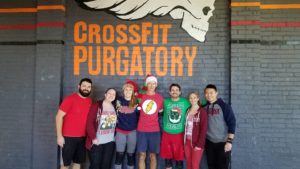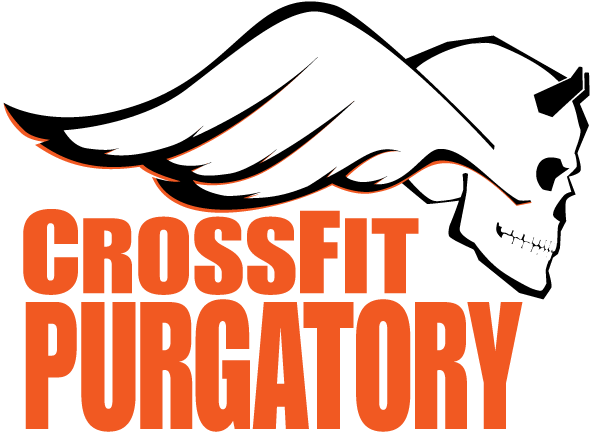Alessandra Fassett
How Focusing On Your Breathing Can Improve Your Fitness

Fitness Through the Holidays!

Here we are, mid-December, and life is busy! This is the time of year when most people’s healthy habits get derailed, and before you know it, we are feeling left with less energy. Here are five ways you can add fitness to your day, even during the busy holiday season:
1. Increase Physical “Work”
Technology has caused a major shift in the way humans live, and physical activity has become an optional daily occurrence. However, with a creative mindset we can still take advantage of many events in our days with good old fashioned labor. Try some of these challenges to increase your work capacity throughout the day:
- At the grocery store steer clear of the shopping cart. Try to only use a basket (or two) to carry your food. As you navigate the aisles you’ll be improving your grip and building core strength with a bonus deadlift thrown in any time you set your basket down. By choosing to carry the items you will also develop awareness around what you’re purchasing. The bottom line, you get more fit and only the essentials make it home. Your inner hunter-gatherer will be proud!
- Park far away in the parking lot. It’s just as fast as driving up and down the lanes to get as close as possible.
- Take the stairs. Every step counts and if you’re really motivated try throwing in some lunges!
- Leave the car in the garage. Take a new approach to your daily travel and try to walk or bike to work.
2. Stretch It Out (Every Chance You Get)
A terrific habit to build is to practice full range of motion and proper biomechanics in the daily activities you already do. How many times a day do you catch yourself hunched over, chin to chest with your neck craning to look into a screen. Ouch! Focus on good posture with shoulders back and eyes gazing straight ahead. See how it affects your mood, confidence and energy levels!
- While grabbing items off of a bottom shelf or cabinet, hold the bottom position of a squat and drive your knees out to the sides. Spending 10 minutes a day in the bottom of a squat can be life changing for your spine, hips, and knees!
- If you’re talking on the phone or typing at your computer incorporate ankle rolls at the same time. Rotate your foot at the ankle as if you were at the beach writing your name in the sand with your toes. Make sure to practice each letter of the alphabet.
- Driving to and from work? This is a great time to work on externally rotating your shoulders while sitting up tall with a proud chest.
3. Equalize The Sedentary Activities
Take advantage of time that doesn’t require movement to work postural muscles or build in fitness breaks. Alternating work and rest periods will increase metabolism and improve circulation. This can even be a great opportunity to develop your strength. By practicing strength daily you can make remarkable improvements in a short amount of time. Strength is a skill and the majority of initial gains in strength are due to neuromuscular adaptations to training.
- For office work or writing try a standing desk or treadmill desk.
- If you’re at home watching television try to practice push-ups, squats, or core exercises during the commercial breaks. One popular method technique is called “grease the groove. The premise is simple, pick a movement you want to improve at and perform a set of the exercise with half of your maximal reps (eg. if your max number of pullups is 10, you will want to perform sets of 5). Rest at least 15 minutes between sets. Repeat as often as possible throughout your day.
4. Get Outside Every Day
Getting outdoors is the perfect chance to reset and reconnect with your body, and there’s no better place than Tucson to take advantage of the beautiful December weather! Whether it’s a park you swing by on the way home from your work or stepping out on the back porch with your morning coffee making time for the outdoors is an essential. Moving outside requires us to apply our bodies to move in new and challenging ways. Some recommendations:
- Climb a tree, seriously when was the last time you did? Go now, you can thank me later…
- Walk or run barefoot. Connecting your feet with the dirt, grass, or sand feels great, allows full range of motion, and strengthens the feet.
- Find a rock, log, or another odd object to be your new “pet rock”. Take your new found pet on a walk and enjoy this new test of fitness.
5. Find A Community
One of the best ways to add fitness to your day is to surround yourself with people who care about their health. Positive social support has been proven to improve adherence to exercise and dietary habits. If you feel like you need help in achieving your health and fitness goals maybe joining a tribe of people on the same journey is the best way to add fitness to your day!
Need more action in your life? Schedule your Free 1 Hour Intro with Crossfit Purgatory here!
Coffee, Wine, Bacon, and Fitness

The truth about some of your favorite indulgences
You’ve gotten into a consistent fitness routine and are finally starting to feel good about the healthy choices you are making! Often, we tend to adopt new favorite foods along the way. At the top of the list for many are coffee, wine, and bacon. These foods are dietary staples in the fitness community, and are usually considered somewhere in the category of “not bad enough to worry about and maybe even good for you.” It’s worth taking a deeper dive into the health benefits and potential pitfalls which can occur when eating these favorite foods.
Coffee
More than 450 million cups of coffee are consumed everyday in the United States alone. Coffee is also the world’s number one source of antioxidants due to widespread consumption and high levels of polyphenols and hydrocinnamic acids. Despite its amazing capacity to fight free radicals in our body, most people reach for a “cup of joe” each morning for one reason only – that energizing boost of energy!
Caffeine can be great before a workout due to the increase in focus, energy, and alertness, helping us feel ready to perform. It has even been shown to reduce pain associated with exercise, making it a powerful training partner.
A cup of coffee can be beneficial post workout as well. When we exercise, our bodies utilize glycogen, a form of glucose stored in our muscles, as a fuel source. In one study it was observed that athletes who consumed caffeine with carbohydrates after exercise had 66% more glycogen in their muscles 4 hours later. This significant boost in glycogen storage means you have set the tone for success in your next workout in terms of available energy.
Challenges arise when the quantity and timing of caffeine consumption begin to interfere with rest and recovery. Caffeine has been shown to interrupt sleep even when consumed 6 hours before bed time. Individual caffeine sensitivity can vary from person to person, so listen to your body. Caffeine also acts as a diuretic, meaning the more coffee we drink, the harder we need to work to keep ourselves hydrated.
Wine
Red wine has long been touted as “heart healthy” and the best choice if you do wish to drink. However if you are a competitive athlete, trying to build muscle, or on a mission to lose fat there really isn’t a place for alcohol in your diet. All alcohol is merely empty calories. Wine can also interfere with sleep, testosterone production, and put extra wear and tear on your already busy liver. However, If you do find yourself in a situation where a drink is fitting, red wine can be a better choice than cocktails or beers in terms of calories and sugar.
What about the heart health benefits and antioxidants in red wine, don’t those make a glass worth it a few times a week?
Yes and No. Mostly no…
The link between red wine and heart health is still unclear, and a positive correlation between the two has not been found. Red wine also doesn’t seem to perform better than other alcohols in terms of cholesterol and heart health. Some of the hype around red wine comes from its resveratrol content. It is possible that resveratrol reduces LDL levels and prevents blood clots. Unfortunately, to reap these potential benefits requires drinking high quantities of alcohol, thus creating other potential health problems. Resveratrol supplements may not be absorbed that well. Look for other good sources in foods like blueberries, peanuts, and plain old unfermented grapes!
Bacon
Bacon. Crispy. Crunchy. Delicious.
Is there any dish that can’t be improved by its presence?
Bacon may be the most controversial and beloved food in existence. In the wake of the paleo dietary movement and a shift in the way our country views dietary fat intake, bacon has become the “little cheat food that could”.
Bacon is made from pork belly and contains high levels of both monounsaturated and saturated fats. Bacon also contains oleic acid, found in other healthy fats like olive oil. The ratio of different fats in the diet, genetics, and lifestyle choices all contribute to how much saturated fat we can consume for optimal health.
While bacon may not be so bad for you after all, you have to be choosy. Consider the quality of the pork and the processing it undergoes during curing. The process generally involves curing cuts of pork belly with salt and sugar, then applying heat through a smoking process. There is also generally the application of some form of nitrates or nitrites to help preserve quality and appearance of the bacon.
When selecting your bacon product, focus on where the pork came from and how it was raised. The best brands will be pasture or humanely raised and organic. The ingredient list should be short and not too sweet. That means pork, water, sea salt, and a small amount of sugar in the form of brown sugar or maple syrup. If you see a long list of preservatives and words you don’t recognize, steer clear (true for all foods!)
Finally, some brands will use different sources of nitrates, and even if the brand claims to be nitrate free it will often contain an ingredient like celery powder which has naturally occurring nitrates. Nitrates can convert to a carcinogenic compound known as “nitrosamines” under high temperatures. If you like your bacon crispy, then you increase the chance of consuming these compounds. Our body blocks the effects of these carcinogens in the presence of Vitamin C, so grab a slice of orange or grapefruit with your bacon to play it safe!
Follow these guidelines and you’ll be sure to enjoy your “healthy” vices in the most appropriate ways possible. If you have questions about nutrition and how other dietary and lifestyle choices are affecting your training we can help! Just email nutrition@crossfitpurgatory.com to schedule time with our Nutrition Coach, who can help you create a personalized diet plan to fuel the best you possible!
Maximize Your Macros:
A Consumer’s guide to Fat, Carbs, and Protein…
Diet and nutrition are a highly individual journey and no one answer is true or right for everyone. The simple fact of the matter is that when it comes down to it, you have to figure out what works best for you. However there are some overarching philosophy that can channel your approach to healthy eating. When you figure out a style and frequency in your relationship with food that works well you will notice improvements in energy levels, focus, mood, and of course physical performance.
Fats
Paleo, Ketogenic, and Atkins diet have helped change many of the negative perceptions of fat in the diet. As Americans a far bigger threat to our health is a diet that contain high sugar and processed foods.Fats are not only not bad for you but are an essential source of fuel and micronutrients that make us healthy. It’s important to choose the right types and amounts of fats in your diet that let you operate at your best.
The chemical structure of a fat or fatty acid determines what role it will play in our bodies. Based on this structure we are able to classify fats in certain classes that share similar characteristics.
Fats can be divided into saturated, monounsaturated, and polyunsaturated fats.
Saturated fats are found in red meat and coconuts and up until recently have gotten a bad rap as culprits of heart disease. Monounsaturated fats are found in plant foods like nuts, avocado, and olive oil. Polyunsaturated fats include Omega-3’s and Omega-6’s which can be found in fatty fish, flax seeds, and walnuts and are associated with a variety of health benefits.
Fats are essential for energy requirements, hormone production, and make up the wall of every cell in your body. They are also directly related to our immune system and having the right ratio of fats is very important for a healthy inflammation response.
Carbohydrates
Carbohydrates are found across a wide variety of foods and depending on the structure of the molecule our body will respond to eating carbs in very different ways. Carbohydrates have a direct relationship with the glucose levels or blood sugar in our bodies. When our blood glucose levels become elevated our body releases a hormone called insulin to store this extra energy for later when we might have a greater need for it. This glucose is stored in the muscle and liver in long chains known as glycogen or the glucose can be stored in adipose tissue to be utilized later (aka fat storage).
Your goal should be to optimize the amount of carbs that are being stored as glycogen and minimizing excess carbs that would contribute to fat stores. Selecting the right types of foods like vegetables are beneficial because they contain fiber, vitamins, minerals and have a low glycemic index. The glycemic index measures how much a food increases our bodies glucose after consumption. High GI foods include white bread, white rice, and cereals. These foods can be very bad for your waistline, because if your body is not prepared to receive fuel and store it as glycogen they will immediately be stored as fat.
Our bodies can become insulin resistant and requires higher and higher amounts of insulin to store the glucose. Resistance training however, can increase our insulin sensitivity. That means that our cells are highly responsive to storing glucose when insulin is present. Focus on consuming low glycemic carbohydrates that provide key nutrients and avoid high sugar or refined ingredients.
Protein
Protein is found in and comprises most of the cells in our body. It is found in a variety of animal and plant sources. Protein is important because it contains amino acids, tiny molecules that are the building blocks of muscle and also used for the synthesis of hormones and neurotransmitters. Some of these amino acids are considered essential meaning they must be provided from a dietary source. Without these essential amino acids we will not be able to repair our tissues and certain vital processes will cease to happen.
Since protein helps us recover from and perform optimally during our workouts it is important to consume after a workout for muscle repair. Real food sources of protein include beef, chicken, eggs, and fish. Try to include these foods as staples in your diet. These foods have amino acid content that is similar to what our human body requires for repair. This is also known as the biological value of the protein. Vegetable sources of protein have a lower biological value and may lack one of the essential amino acids needed by humans. These foods must be strategically combined by vegans or vegetarians so they consume all the amino acids needed for tissue repair. As a vegan athlete it can be challenging to meet your needs without supplementation and can be difficult to get a full spectrum of key micronutrients.
Try to consume 1.0 to 1.5 grams of protein for every kilogram of body weight. For a 200 pound man (90 kg) that means 90 grams to 135 grams of protein per day. This will provide enough amino acids for your bodies daily needs. Unfortunately eating more protein doesn’t mean it automatically turns into muscle. Unused protein will be broken down and utilized as a fuel source by the body.
Hopefully knowing a little bit more about each of the macronutrients and how they act in your body will help you to make informed decisions. If you have more questions around a healthy diet give us a call today!
Strength Training for Injury Prevention
“An ounce of prevention is worth a pound of cure.” -Benjamin Franklin
Life is unpredictable and sometimes in our sports, exercise, and daily life we come out of these unpredictable situations a little bit worse for the wear…
Some folks try to prevent these situations from happening through avoidance, but if you want to have a high quality of life I highly recommend you adopt a strength training program as your physical insurance policy. This is certainly a much more proactive approach to mitigating physical injury than hoping for the best.
“If you train hard, you’ll not only be hard, you’ll be hard to beat.” -Herschel Walker
Or if you are an athlete like Robert Griffin III, you may want to consider the risk factors of your sport. Robert, aka RG3, came into the NFL and was an instant phenom and fan favorite for his dazzling display of athleticism that was uncommon in quarterbacks. His jukes, spins, and leaps were no match for the demands professional football places on an athlete and RG3 has spent most of what was once a promising career watching from the sideline, injured.
You see, despite his athleticism, RG3 has not trained in a way that reinforced a fundamental movement pattern. As we look at the series of pictures highlighting the windup before an explosive jump we see a valgus knee fault, where his knees cave in, creating a very compromised position for the joints of his lower extremities. Even though not all injuries are preventable, by focusing more on proper technique and exercises that stabilized the knee joint rather than increasing strength and speed RG3 may have avoided some major injuries in his career.

“There are no shortcuts to any place worth going.” -Beverly Sills
So what should a workout look like?
Exercise should replicate natural human movement patterns. The ones we encounter on a day to day basis. Squat, lunge, hinge, push, pull, rotate and walk. Most exercises fall into at least one and sometimes several of these movement patterns. By addressing all of them in our training we not only improve our functional strength but also prepare our bodies for anything life could throw at them.
In one study published in the American Journal of Sports Medicine there was an 88% overall reduction in ACL injury rate in an intervention group of soccer players who participated in an injury prevention program. The right knowledge and a little consistency can go a long way when it comes down to keeping your body healthy.
Is your current training program addressing mobility, recovery, full range of motion, and then total body strength?
If you have suffered from injuries in the past or have concerns with your mobility it is important to address those with your trainer or coach. They will be able to help you by assessing the area of concern and designing a program to help you improve function with goals and checkpoints along the way. It is not always fun, easy, or sexy to do but giving attention to our problem areas will be easier to do the sooner you start.
“I hated every minute of training, but I said, ‘Don’t quit. Suffer now and live the rest of your life as a champion.”’ -Muhammad Ali
Don’t be the dad who throws out his back building sand castles at the beach. Talk to one of our coaches and we’ll help you tackle your challenge areas today!
5 Reasons to get STRONG
Fitness trends come and go and most fall to the wayside for good reason.
Most programs fail to produce consistent results. It’s a wonder why so many folks stray away from what is tried and true when it comes to exercise programs?
“The rule is: the basics are the basic, and you can’t beat the basics.” -Charles Poliquin
Despite what your goals may be, every individual can benefit from physical resistance training. Not only that, but the health benefits extend far beyond your short term fitness goals. Regardless of why you train, let’s take a look at some of the reasons you should incorporate strength training into your fitness regimen.
1. Training for strength produces results.
Whatever your goals, muscle will help you get there. Some companies in the fitness industry has made a fortune around buzzwords like “tone”, “lift”, and “sculpt.” The problem is there’s no way to measure those loose terms. If you want to change your body composition there is only the ability to gain or lose muscle while simultaneously gaining or losing fat. If you are looking for the most efficient way to do make a change then strength training is your best option.
Strength training, or physical resistance training, can be defined as a type of physical exercise specializing in the use of resistance to induce muscular contraction which builds the strength, anaerobic endurance, and size of skeletal muscles. When you gain muscle you increase your bodies basal metabolism (the amount of calories you burn each day before factoring in physical activity). It’s kind of like putting a bigger engine in a car. The car is capable of moving faster or pulling a heavier load (more muscle), but it also uses more fuel (fat) whether it’s cruising down the freeway or idling in the driveway. Strength training helps us “tone” through this muscle gain/fat loss trade.
2. “You can’t manage what you can’t measure.” -Peter Drucker
Training for strength provides a clear path for success. You can set training goals that are specific, measurable, and produce desired outcomes. A good coach will help you design a plan towards these goals with checkpoints along the way. Your strength training program is a road map to success with clear directions. Sets, reps, and weights lifted safely through the full range of motion are the signals that you’re on track. Many people find that a more detailed plan helps them stay motivated as they experience progress.
3. Age gracefully with more muscle mass.
As we get older strength training is one of the most important things we can do for our health. Physical independence is a key factor in a great quality of life.
A comprehensive study of strength training has been proven to:
- Improve motor function
- Lower resting heart rate
- Increase stamina
- Prevent sarcopenia (age related muscle loss)
- Improve bone mineral density
- Prevent and help rehab injuries
Functional strength training will be an asset in daily life too. From picking up grandchildren or bags of groceries to climbing stairs with confidence.
4. You’ll experience epic brain gains.
Did you know that lifting weights can strengthen your brain just as much as it does your body?
Dr. Yorgi Mavros from the University of Sydney has found that high‐intensity physical resistance training (PRT) results in significant improvements in cognitive function, muscle strength, and aerobic capacity in older adults with mild cognitive impairment. Adults who followed a resistance training routine in addition to cognitive training performed significantly better than control groups on a series of mental tests. A couple key factors to note:
The participants exercised 2x/ week working to at least 80% of their peak strength.
The benefits lasted one year after the exercise prescription had ended.
What does that mean? According to Yorgi, “The stronger people became, the greater the benefit for their brain.” Let that sink in for a minute. You actually grow your brain by training to become stronger! It makes me wonder if Einstein developed his Theory of Relativity in between heavy sets of back squats…
5. Strong moms have healthy babies.
During pregnancy, the question always arises of what does fitness look like for this stage of life? With so much on the line, it’s important to consult with a doctor before beginning any fitness routine. Luckily, there is a tremendous amount to be gained by incorporating a strength training routine under normal circumstances. Resistance training can help alleviate symptoms and improve health outcomes for the mother and child. According to the Mayo Clinic, women who follow a consistent strength training routine during pregnancy can experience:
- Reduce backaches, constipation, bloating and swelling
- Boosted mood and energy levels
- Better sleep
- Prevent excess weight gain
- Maintain levels of muscle strength and endurance
- Reduced incidence of gestational diabetes
Not only that but women who train during pregnancy report enhanced body image and better psychological well-being!
We would love to help you live a healthy strong life. Schedule a Free Consult to learn more.

